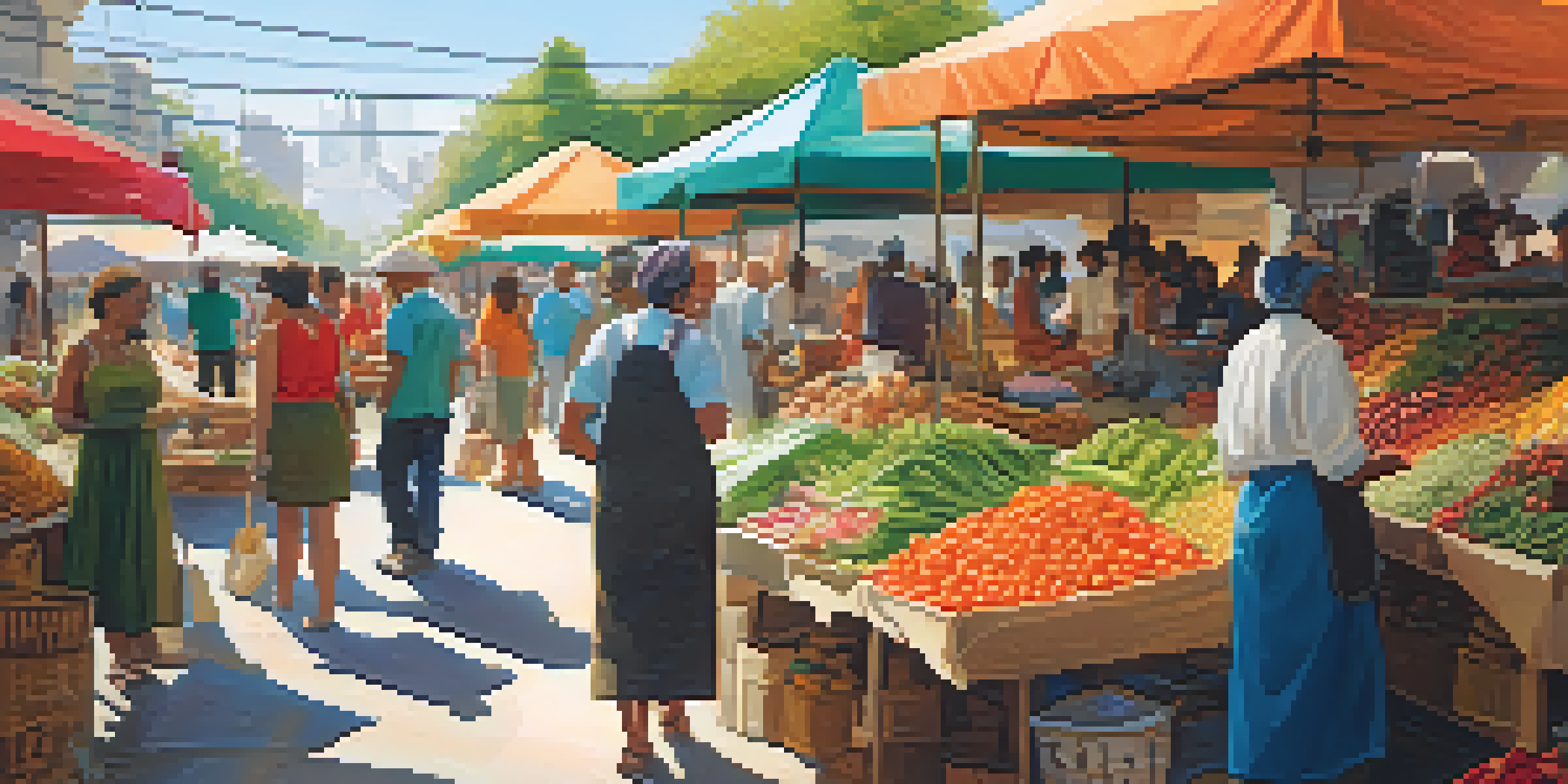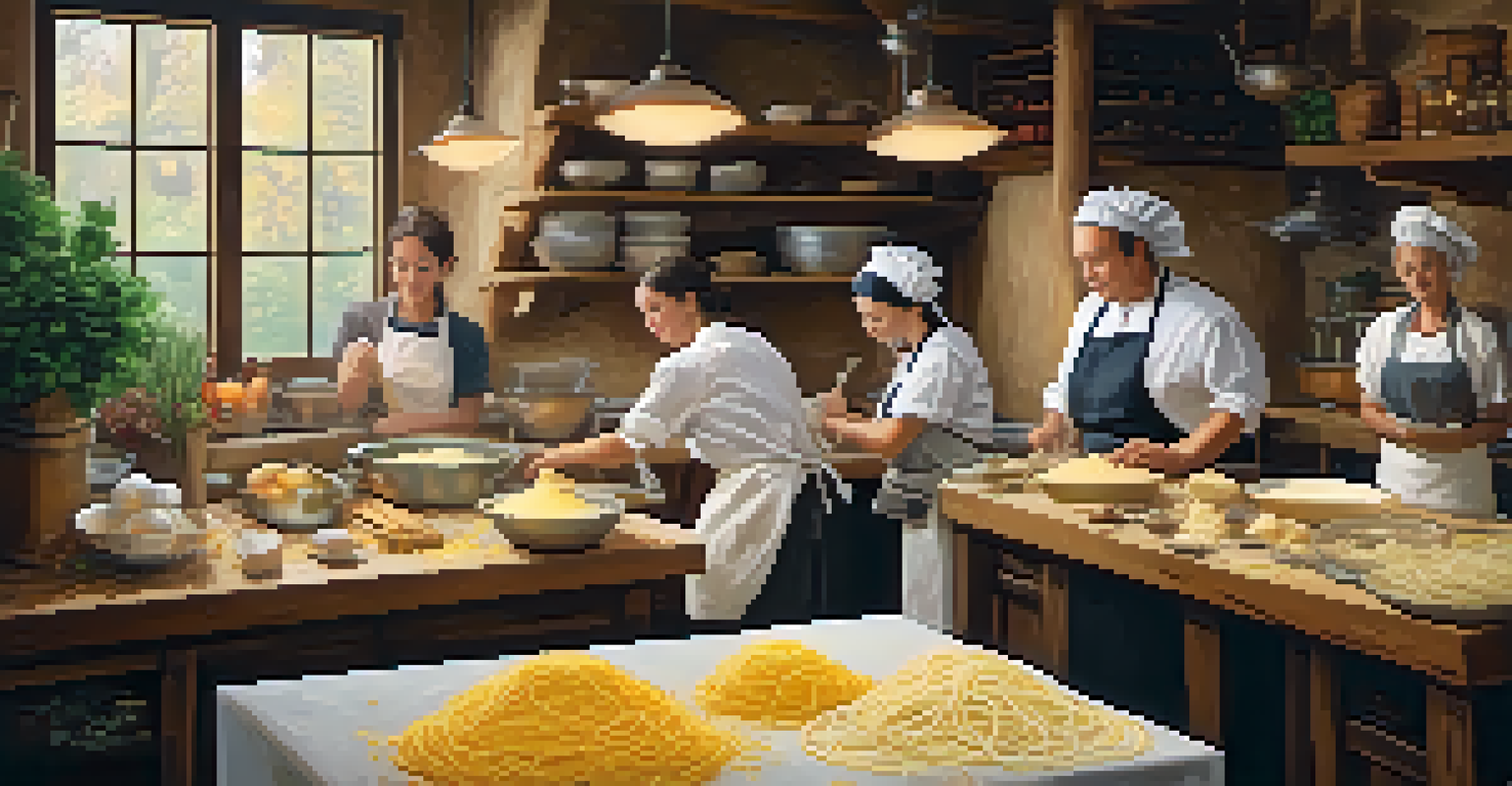Culinary Tours: Learning Through Global Cooking Classes

What Are Culinary Tours and Cooking Classes?
Culinary tours combine travel and gastronomy, allowing participants to explore local cuisines while traveling. Imagine strolling through vibrant markets, sampling fresh produce, and learning about local food traditions. Cooking classes are often a part of these tours, offering hands-on experiences to create authentic dishes from various cultures.
Cooking is an observation-based science, and a lot of science is just believing in something and testing it.
These tours can range from short local experiences to extensive international adventures. For instance, you might take a pasta-making class in Italy or learn how to prepare traditional sushi in Japan. Each experience not only teaches you how to cook but also connects you with the culture and people behind the cuisine.
Overall, culinary tours and cooking classes provide a unique way to experience a destination beyond typical sightseeing. They engage all your senses, making travel more enriching and memorable.
Benefits of Participating in Culinary Tours
Participating in culinary tours offers numerous benefits, starting with the opportunity to learn directly from local chefs and food artisans. This experiential learning approach enhances your cooking skills and gives you insider tips that you won’t find in a cookbook. Plus, you get to taste the authentic flavors of a region, which can be a game-changer for your culinary repertoire.

Additionally, these tours often promote cultural exchange, allowing you to interact with locals and understand their food philosophies. For example, sharing a meal with a family in their home can provide insights into their traditions and customs, creating lasting memories. This personal connection enriches your understanding of the cuisine you’re learning about.
Culinary Tours Enhance Travel
Culinary tours offer unique experiences that combine local cuisine exploration with cultural immersion.
Culinary tours also foster a sense of community among participants. Whether you're cooking alongside fellow food enthusiasts or sharing stories during a meal, these experiences create bonds that can lead to lasting friendships.
Exploring Diverse Global Cuisines
One of the most exciting aspects of culinary tours is the chance to explore diverse global cuisines. Each region has its unique flavors, ingredients, and cooking techniques that reflect its culture and history. For instance, learning about the spices of Indian cuisine can transform your understanding of flavor profiles.
Food is the ingredient that binds us together.
You might find yourself learning how to prepare a traditional paella in Spain or mastering the art of French pastry-making in a Parisian kitchen. Each dish tells a story, whether it's about the land, the people, or their traditions. This exploration allows you to appreciate food on a deeper level.
Moreover, trying your hand at cooking these dishes provides a sense of accomplishment and boosts your confidence in the kitchen. You’ll return home with not just recipes, but also a newfound appreciation for the culinary arts around the world.
How to Choose the Right Culinary Tour
Choosing the right culinary tour can feel overwhelming with so many options available. Start by considering your interests: do you want to focus on a specific cuisine, or are you looking for a broader experience? Researching the tour operators and reading reviews can also give you insight into what previous participants enjoyed or found lacking.
It's also crucial to evaluate the class sizes and the level of instruction offered. Smaller classes often mean more personalized attention and a better learning experience. For example, a hands-on pasta-making workshop with a local chef could be far more enriching than a large group demonstration.
Learn from Local Experts
Participants gain valuable cooking skills and insider tips by learning directly from local chefs and food artisans.
Lastly, think about the logistics, including the tour's duration, location, and cost. Balancing your budget with your culinary aspirations will help you select a tour that fits your needs and provides value.
The Role of Local Ingredients in Cooking Classes
One of the highlights of culinary tours is the emphasis on local ingredients, which play a crucial role in authentic cooking. Many classes begin with a visit to local markets to select fresh, seasonal produce, allowing you to experience the vibrant culinary landscape firsthand. This not only enhances the flavors of your dishes but also supports local farmers and artisans.
Understanding the importance of local ingredients can significantly elevate your cooking. For instance, learning how to make a classic Mexican mole using fresh chilies and spices can transform your dishes back home. You’ll learn to adapt recipes based on what’s available in your area, promoting a sustainable cooking approach.
Incorporating these local ingredients also fosters a deeper connection to the cuisine you’re learning. You gain insight into the agricultural practices, climate, and culture that shape the food of a region, enriching your culinary journey.
Culinary Tours as a Form of Cultural Immersion
Culinary tours offer a unique form of cultural immersion that goes beyond traditional travel experiences. By engaging with local chefs and participating in cooking classes, you gain a firsthand understanding of a culture's values, traditions, and history. This deeper connection can transform how you view food and its role in society.
For example, cooking a traditional Thanksgiving dinner in the USA or preparing a feast for a festival in Thailand can teach you about the significance of these meals in their respective cultures. You begin to appreciate how food brings people together and is often central to celebrations and rituals.
Embrace Local Ingredients
Using fresh, local ingredients in cooking classes deepens the connection to the cuisine and supports local farmers.
This form of immersion not only enriches your travel experience but also broadens your perspective on the world. It encourages you to explore and appreciate the diversity of cultures through the universal language of food.
Tips for Maximizing Your Culinary Tour Experience
To get the most out of your culinary tour, come prepared with an open mind and a willingness to learn. Embrace the new flavors and techniques you encounter, and don’t hesitate to ask questions during classes. The more curious you are, the richer your experience will be.
It's also helpful to document your journey through notes or photographs. Keeping track of recipes, tips, and personal experiences can serve as a valuable resource when you return home. Plus, it allows you to share your culinary adventures with friends and family.

Lastly, connect with fellow participants and locals. Sharing experiences and recipes can enhance your understanding and make the journey even more enjoyable. Building these relationships can lead to future culinary adventures and friendships that stretch across the globe.